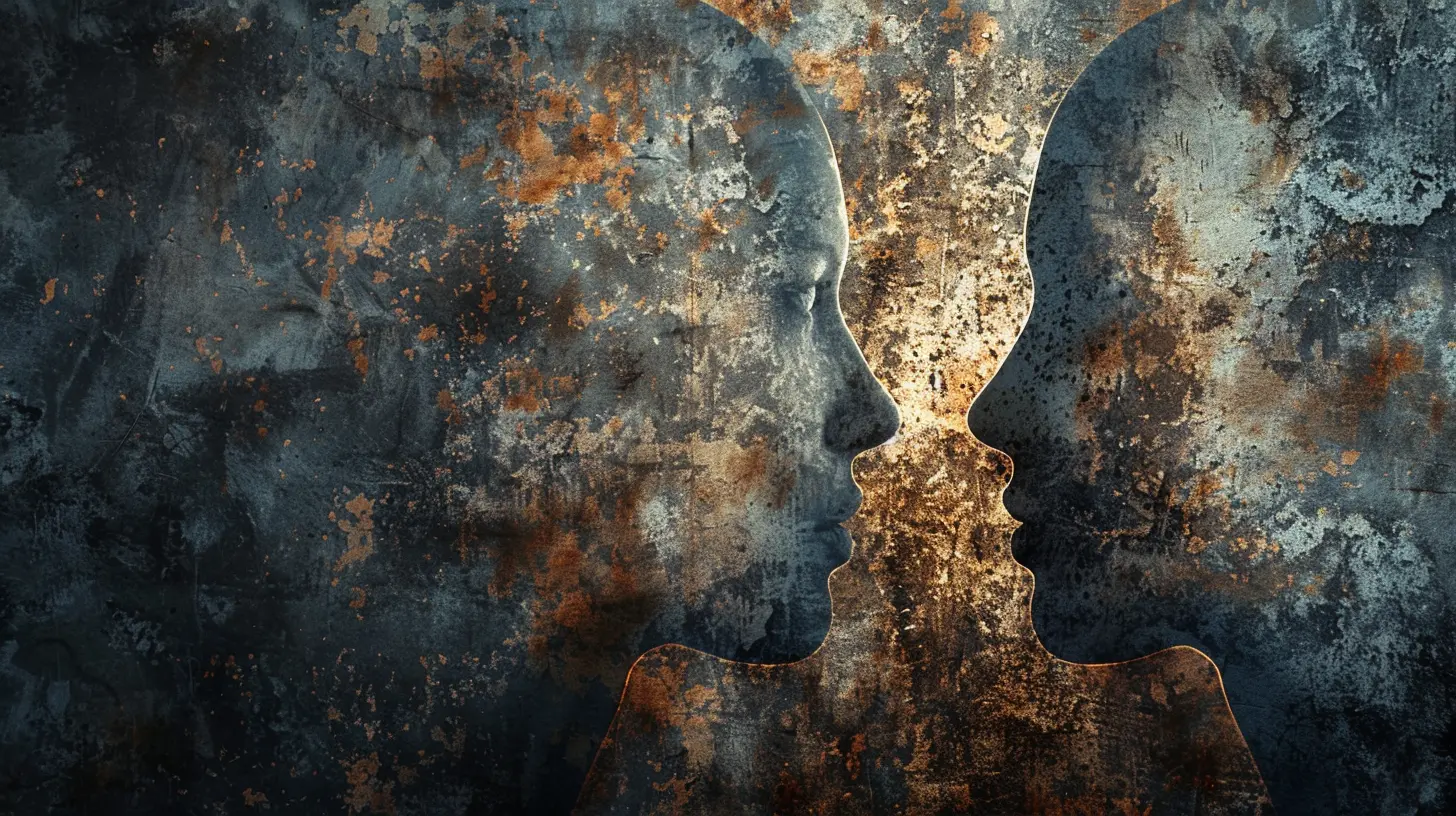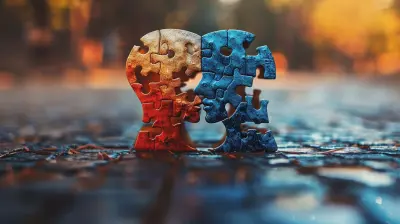The Ethics of Psychoanalysis: Power Dynamics in the Therapeutic Setting
5 May 2025
Psychoanalysis is often seen as a deep and transformative process—a space where individuals lay bare their thoughts, emotions, and traumas. But have you ever wondered about the power dynamics in this setting? What happens when one person holds the keys to someone else's unconscious mind?
As much as therapy aims to heal, the therapist-client relationship is undeniably imbalanced. This article dives into the ethical concerns of power in psychoanalysis, the potential for abuse, and the ways therapists can maintain ethical integrity.

Understanding Power in Psychoanalysis
At its core, psychoanalysis is built on the idea that a trained professional helps a client explore their subconscious thoughts, patterns, and traumas. However, this relationship isn't equal—the therapist holds authority as the expert, while the client is vulnerable, often discussing their most intimate fears and memories.Power dynamics in therapy can be subtle yet impactful. The therapist has the ability to shape interpretations, influence emotions, and even guide the self-perception of the client. With this power comes great responsibility, making ethics a central concern in psychoanalysis.

The Therapist as an Authority Figure
Think about it—when you sit in a therapist’s office (or on a virtual call), you’re expected to trust that person with your emotions. The therapist holds expert knowledge, advanced training, and a level of objectivity that clients typically don’t have. This naturally puts them in a position of authority.This authority isn't necessarily manipulative, but it does create potential ethical pitfalls. Clients may become overly reliant on their therapist’s guidance, feeling as though they need their approval or insight to navigate personal challenges.
The “Blank Slate” Approach—Helpful or Harmful?
Many psychoanalysts follow the “blank slate” model, where they reveal little about themselves to avoid influencing the client’s thoughts. The idea is that by remaining neutral, the therapist allows the client to project their internal conflicts outward, creating a clearer path toward self-awareness.However, this approach can sometimes contribute to an unhealthy power dynamic. When clients see their therapist as a mysterious, all-knowing figure, it can create an imbalanced relationship where the therapist's words hold disproportionate weight. If the therapist is not careful, they might unintentionally shape the client’s beliefs rather than helping them discover their own truths.

Ethical Concerns in Psychoanalysis
The power imbalance in therapy isn’t just theoretical—it has serious ethical implications. While most therapists uphold strict ethical guidelines, the potential for misuse remains.1. Transference and Countertransference
In psychoanalysis, transference occurs when clients project their feelings (often unconscious) onto the therapist. For example, a client may start seeing their therapist as a parental figure, a source of love, or even an antagonist.Similarly, countertransference happens when the therapist unconsciously projects their emotions onto the client. If these emotional exchanges go unrecognized, they can cloud judgment, leading to manipulation or blurred boundaries.
2. Dependency Issues
A major ethical concern is the risk of clients becoming overly dependent on their therapist. When therapy extends indefinitely without progress, it can create an unhealthy reliance rather than fostering independence. A responsible therapist should recognize when a client is no longer benefiting from therapy and guide them toward closure rather than prolonged dependency.3. The Risk of Therapist Exploitation
Unfortunately, there have been cases where therapists abuse their position of power—emotionally, financially, or even sexually. Ethical guidelines strictly prohibit such exploitation, but power can sometimes make individuals feel invincible. This is why consistent oversight, ethical training, and peer accountability are crucial.
Maintaining Ethical Integrity
So, how can psychoanalysts manage their power responsibly? Ethics in therapy are not just about avoiding malpractice—they're about ensuring a safe, respectful, and effective healing process.1. Establishing Clear Boundaries
Boundaries are essential in any therapeutic relationship. This includes:- Keeping relationships strictly professional (no friendships or romantic involvement).
- Maintaining appropriate communication outside sessions.
- Being transparent about therapy fees, duration, and expectations.
By setting clear boundaries, therapists can prevent misunderstandings and reduce the likelihood of dependence.
2. Encouraging Client Autonomy
An ethical therapist doesn’t dictate solutions but helps clients develop their own insights. Instead of saying, “This is what you should do,” they might ask, “What do you think would be best for you?”Encouraging autonomy ensures that therapy empowers clients to become more self-reliant rather than dependent on the therapist’s approval.
3. Regular Supervision and Peer Consultation
Even experienced therapists need guidance. Regular supervision or case discussions with peers help professionals stay accountable, ensuring their personal biases or unconscious countertransference don’t interfere with ethical decision-making.4. Being Transparent About Limitations
No therapist is all-knowing, and acknowledging personal and professional limitations is a hallmark of ethical practice. If a client’s needs go beyond the therapist’s expertise, referring them to a more suitable professional is the right course of action.The Future of Ethics in Psychoanalysis
As mental health awareness grows, so does the need for revised ethical standards. The rise of online therapy, cultural shifts, and increasing knowledge about trauma-informed care all play a role in shaping modern psychoanalysis.Ethical considerations will likely continue evolving to address new challenges, such as:
- The impact of digital therapy on privacy and confidentiality.
- The role of cultural competence in therapy.
- How technology (e.g., AI-assisted therapy) affects therapist-client dynamics.
By adapting ethical principles to these evolving landscapes, psychoanalysts can continue to provide responsible, effective care without abusing their authority.
Final Thoughts
Power exists in every therapist-client relationship, but it doesn’t have to be a negative force. When used ethically, a therapist’s influence can foster healing, self-awareness, and personal growth.At the same time, ethical safeguards must always remain in place to prevent potential abuses of power. The ultimate goal of psychoanalysis isn’t for clients to become dependent on their therapist—it’s to help them gain the insights and tools they need to navigate life independently.
If you’ve ever been in therapy, you might recognize these dynamics at play. And if you’re considering therapy, it’s essential to choose a professional who respects and upholds ethical boundaries. After all, genuine healing happens in a space of trust, respect, and empowerment.
all images in this post were generated using AI tools
Category:
PsychoanalysisAuthor:

Paulina Sanders
Discussion
rate this article
3 comments
Rhea Sullivan
Essential insights on responsibility.
May 6, 2025 at 3:38 PM

Paulina Sanders
Thank you! I'm glad you found the insights valuable. Responsibility is crucial in navigating therapeutic dynamics.
Fable Long
This article thoughtfully highlights the complex power dynamics in therapy, reminding us of the importance of empathy and ethical responsibility in the healing process.
May 6, 2025 at 3:16 AM

Paulina Sanders
Thank you for your insightful comment! I'm glad you found the article meaningful in exploring these vital aspects of therapy.
Zeth Hines
Power dynamics in therapy? It's about time we spill the tea! Navigating these murky waters isn't just ethical—it's essential. Let’s stop pretending the couch is a neutral zone and start owning our roles in the healing drama!
May 5, 2025 at 3:23 PM

Paulina Sanders
Absolutely! Acknowledging power dynamics is crucial for ethical practice in therapy. It's time to bring transparency and honesty into the therapeutic relationship for true healing.



